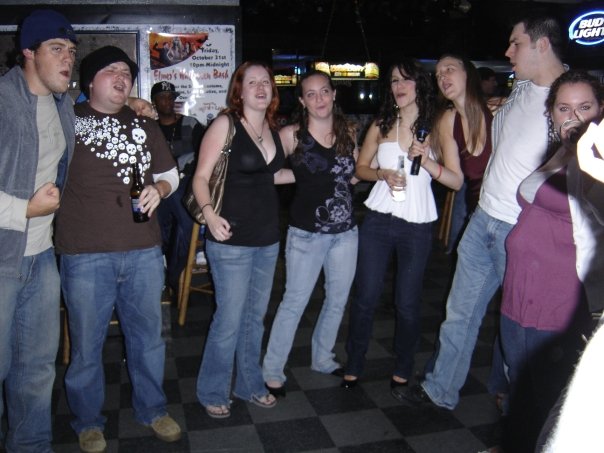 Alex — Cassie’s best friend — steps out of the car, and I watch her ass as she walks toward her dorm building. Cassie moves her hand from my leg and sticks her head out the window, yells something and Alex turns, makes a face then laughs and hops up the stairs.
Alex — Cassie’s best friend — steps out of the car, and I watch her ass as she walks toward her dorm building. Cassie moves her hand from my leg and sticks her head out the window, yells something and Alex turns, makes a face then laughs and hops up the stairs.
Barely five feet tall and all of a hundred pounds, max, Alex is tiny in a way that I find sexy, though I’d never tell her that for a lot of reasons, namely because I don’t actually like Alex as a person. She’s pompous, loud, talks too much, and — most importantly — has a boyfriend who I think is cool and who she treats like shit. Which would make it a serious violation of the bro code to tell his girlfriend I’d love to see her bent over my bathroom counter.
Most of the guys I know don’t give a shit about stuff like that, but I like to think I have more of a moral compass than most guys. Like a few years ago, when I found out that one dude from my job-at-the-time was fucking my girlfriend-at-the-time in the front seat of his car outside of a house party thrown by people we all worked with at a Kendall Drive Tony Roma’s — that right there was something I’d never do, a severe violation of the bro code.
Unless I didn’t like the dude. In that case though, I wouldn’t have any reason to uphold the code in the first place, though most people will say that you’ve got to really, really hate a dude to break the bro code by knowingly fucking his girlfriend in front of a bunch of people who are going to promptly report it back to him with looks of glee lacing their eyelids like tears. Gossip as a narcotic.
Situations like that make me wish there was a degree scale for bro code policy, some sort of graded penalty system. Way it is now, fucking a dude’s girlfriend of three years and being called on the minor bro code violation is kind of like stabbing somebody to death and setting their body on fire and being charged with assault and battery.
The main reason I’d never tell Alex I want to fuck her, though, is sitting next to me right now.
Cassie reclines the passenger seat a little, closes the door and turns to me, a tinge of anxiety in her eyes still, even after five months.
I can’t say much different for myself. It’s there in me too, a heavy, shifting presence of combined affection and resentment that seems to get more oppressive each day. It was fun at first, when things were still innocent, before I fell in love with her and found out about her jealousy, before I rediscovered my insecurity in monogamous relationships, before I knew so much about her past and told her so much about mine that it was all either one of us talked about.
Cassie smiles at me as she exhales, the breath from her full lips visible in faint plumes of smoke, bright red embers glowing from the lit Black and Mild cupped in the palm of her hand. I smile back at her and she hands me the Black as I exit the parking lot. I take a drag and hand it back to her. She pulls it from my hand and stares out the window. I watch her for a moment, her auburn hair flowing across her face, jeans so tight I can’t help putting my hand on her leg. She doesn’t look in my direction and I can tell something’s wrong. I hesitate.
“What’s wrong?” I ask.
She looks at me, eyebrows raised.
“Nothing.” She smiles, pats my hand.
“No, for real, what’s wrong?”
She turns to the window.
“I had a dream about you last night.”
I steady the steering wheel with one hand, the other hand moves from her leg to the gear shift as I watch her put the Black to her lips. She throws a quick glance in my direction and smiles again, nervously.
“Really?” I ask, fixing my gaze back on the road. “Pleasant or the usual paranoia?”
She blushes, exhales. “Just listen.”
This is totally normal. Cassie takes her dreams very seriously, and for the past few months they’ve all involved me. Half of them seem to be good, fun-loving, sensual and occasionally sexual (still haven’t figured out if the sex ones have actually happened or she’s just saying they have for my benefit). The other half aren’t.
We just got back from Christmas vacation, a three week break between Fall and Spring semesters at FSU during which she told me about a few dreams she’d had, most of them involving me being a willing participant in ridiculous acts of infidelity with people I couldn’t possibly cheat on her with (i.e. Megan Fox, Angelina Jolie, every Victoria’s Secret model ever, etc.). I didn’t hear about these dreams until I got back to Tallahassee though. I spent the week and a half surrounding Christmas and New Year’s with my parents, visiting family. The rest of my vacation I spent in various places around Miami: drinking at old coworkers’ houses, partying on South Beach or in Kendall, driving around with my best friend and talking about nothing, and one particular night spent in a rundown hotel room having sex with a girl I used to date named Sophia. I don’t know why I did that. Again.
The first time was Memorial Day last semester, when Sophia took a Greyhound the five hundred miles from Miami to Tallahassee to spend three days in my apartment while Cassie thought I was visiting my parents. The weekend was exhilarating in many ways, juggling between being in bed with Sophia and outside in my car talking on the phone to Cassie, acting like I wasn’t five blocks from her dorm room. Then Sophia left back to Miami and my roommate high-fived me and I realized what I’d just done.
The problem for me though — as I’m just now starting to realize — is that not-being-proud of something doesn’t necessarily equal regret.
“I’m listening,” I say.
Smoke from the Black fills the car and moves out the window in a rush, like it’s escaping from us. Cassie hands me the Black.
“I went to some party you were at,” she starts, and I sigh, staring at the glowing cigar in my hand.
“Here we go.”
“Stop it. Listen. I was at a party and you were there, with Julio and Zach and everybody.”
“Mmm,” I grunt, puffing lazily on the Black before handing it back to her. My lungs burn a little, a pleasant sensation with the temperature in the low thirties and the car windows open. I pull the hood on my sweatshirt up over my head and Cassie goes quiet. We’ve stopped at a red light and she looks at me.
“Forget it,” she says.
“What?”
“You’re not listening to me.” She pouts in this way so I can’t tell whether she’s serious or just being playful.
“I’m listening to you fine. Go ahead.”
She is suspicious. She puts the Black to her mouth again and inhales.
“Anyways, I was at a party and you were there with your friends. And you were all outside in the back. You and Julio were laughing when I walked up and it was about ten of you altogether.”
She hands me the Black and I take it slowly, listening without trying to look too intrigued. I can’t let her know her dreams interest me. Everything about her interests me, I admit that, but I can’t show it. I try sometimes, but then there’s always that damn voice asking Why? Why put yourself out there like that? Why give her the ammo? And I never really know what to say to that dude.
“I walked towards the door,” Cassie continues, “and you were all standing in a circle with some girl in the middle. She was giving one of the other guys head right there, I think Danny.”
I get a flash of my friend Danny, particularly the one night last summer when he and I and all the other boys went to Floyd’s across from FSU and convinced a few girls at the nightclub to come back to Julio’s apartment, at which point we continued drinking and smoking until things just blurred into a melting pot of colors and sensations and nausea. Eventually I left because I was too high and drunk to stay awake, but I heard the next day that Danny had managed to get one of the girls talking about anal sex during a game of truth or dare, which somehow led to him fucking her in the bathroom.
It all sounded a bit farfetched to me, like I can’t really believe that people do shit like that in real life. Then I remembered my own rap sheet: weekend in bed with a girl who turned out to be engaged, drunk ex-girlfriend dragging me outside a night club to blow me in a dirty alley, the Valentine’s Day lingerie party that somehow led to me and a friend having sex with the same girl, at the same time. I shudder and close my window a little.
“It was all of you though,” Cassie says, and I glance at her. “You were all in a circle and she was doing Danny, but you were all cheering for him and waiting your turn.” She peeks at me. “You were next.”
The smoke catches in my throat and I double over, letting out a hacking cough. The car swerves a little and I look up in time to pull it back over as another car approaches in the oncoming lane. I tap the brakes and Cassie glances from me to the road. I cough some more and feel her hand on my back, rubbing gently.
“You all right, babe?”
I look up with a smile and my coughing mellows out, slowly transforms to a chuckle, then full-blown laughter. Cassie stops rubbing my back, frowns and reaches for the Black and Mild in my hand. I pull away and take another drag, which burns in my cough-raw throat.
“It’s not funny,” she says, reaching further. “Gimme.” I exhale and hand her the Black.
“Was that all that happened?” I ask.
“Yes, forget it.”
“I’m sorry,” I say, still chuckling. “It was just funny.” I pause. “To think about.”
“Whatever,” she says.
“Seriously,” I say. “Think about it. You have a dream with ten guys standing around at a party while one girl gives them all head and another girl — you — stands in the back watching.” I shake my head. “You’ve been watching too much porno.”
“It wasn’t funny when I dreamt it,” she says, but her pout isn’t as defined as it was a moment ago.
“Come on, you gotta admit.” I say, poking her. “You having a dream like that, that shit’s funny.”
A smile creeps up the corner of her lips and she turns her head away slightly. I lean forward.
“You’re smiling,” I say. “I told you.”
She turns and punches me in the shoulder.
“I hate you,” she says.
“No you don’t,” I say.
“No,” she says, smiling and handing me the Black without taking a drag. She holds my eyes in hers and touches my cheek. “I don’t,” she says.
I stare at her then at the Black and Mild and suddenly there’s a sinking feeling in my stomach, a deep urge to stop the car and jump out and just fucking book it, take off down the road and never look back. I watch her for a moment, stare at her hand as it moves and comes to rest on my leg, on my inner thigh. I open my mouth to tell her about Sophia, about Christmas Vacation and Memorial Day, about other thoughts, namely how I can’t stop thinking about her and how I’m not ready for this, that I’m too afraid of being rubbed raw to even try being ready for this. I open my mouth to tell her that I think she’s beautiful and that she’s not crazy for having dreams like that. That I don’t know which is worse: that she dreams like that, or that I don’t. I open my mouth to tell her all these things and then that dude in my head asks me Why again — What’re you trying to prove? — and I close my mouth without saying anything and keep driving toward my apartment. And by time I reach there I can’t remember what I was trying to prove. Can’t even remember why I opened my fucking mouth in the first place.
Patrick Anderson has stories in Silverthought, Midwest Literary Magazine, Miambiance and The Worcester Review. He received his MFA from University of Central Florida.





 My son and I set out for a summer hike. A steep trail, the woods deep. I’ve seen the geologist’s map, the tightly packed contour lines. A mile and a half ahead waits an old fire tower.
My son and I set out for a summer hike. A steep trail, the woods deep. I’ve seen the geologist’s map, the tightly packed contour lines. A mile and a half ahead waits an old fire tower.